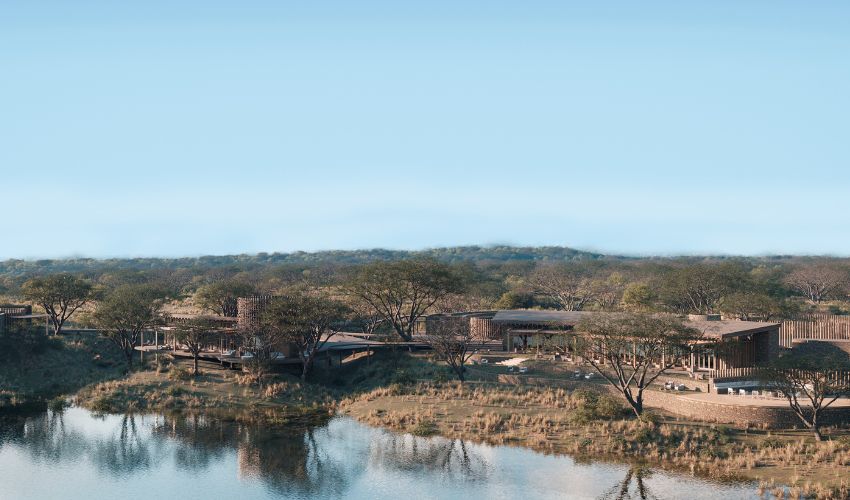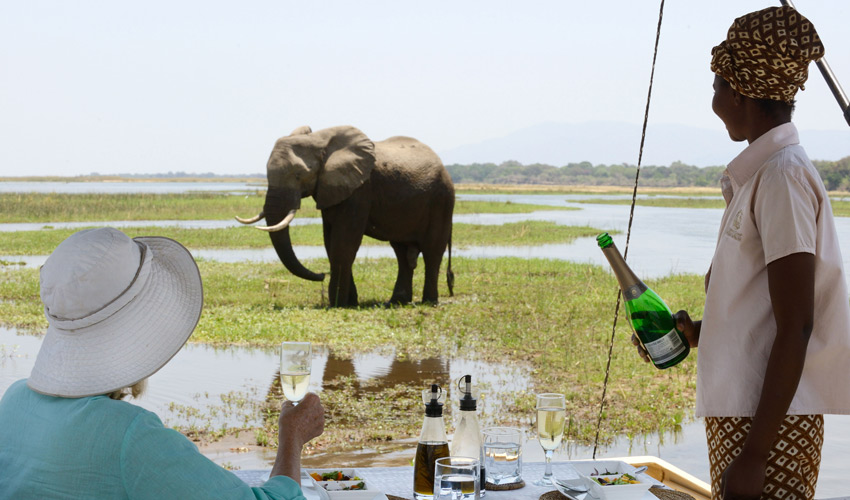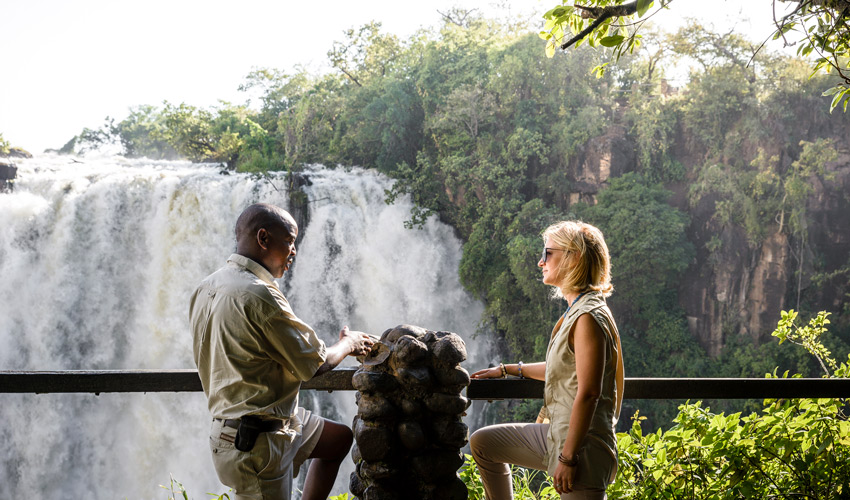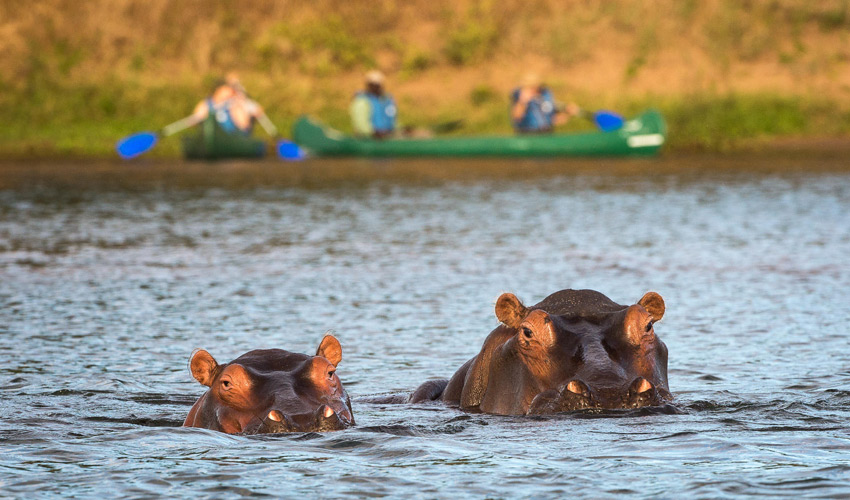SAFARI BLOG
Inside Sandringham Game Reserve
Sandringham Private Game Reserve: A New Jewel in the Kruger Area
Opening in mid-2026, Sandringham Private Game Reserve promises to redefine luxury safari experiences in South Africa. Nestled in the northern Kruger region of the Timbavati, this exclusive reserve combines breathtaking landscapes, abundant wildlife, and world-class accommodations, offering a truly immersive South African safari adventure. Sandringham is part of the renowned Sabi Sabi Collection—the same team behind the famed Sabi Sabi Reserve, ranked #1 in South Africa in 2025 by Condé Nast Traveler.

Prime Location in the Timbavati
Sandringham sits in the heart of the Timbavati, just 40 minutes from Hoedspruit Airport, making it easily accessible while still feeling remote. The reserve spans 5,000 hectares (16,000 acres), featuring 38 kilometers (20 miles) of river frontage and the largest dam in the area. With abundant water and untouched natural habitats, Sandringham offers the perfect setting for a wide variety of wildlife and authentic safari encounters.
Wildlife in the Timbavati Region
Timbavati, part of South Africa’s Greater Kruger ecosystem, is a haven for wildlife enthusiasts. Guests can expect classic Big Five encounters—lion, leopard, elephant, buffalo, and rhino—alongside cheetah, wild dog, and an abundance of plains game like giraffe, zebra, and impala. Rivers and waterholes attract hippos, crocodiles, and a dazzling array of birdlife. Timbavati is also renowned for its rare white lions, offering the chance to witness one of nature’s most extraordinary treasures in the wild.
A Rich History Reimagined
Once a hunting reserve, Sandringham was purchased five years ago and carefully rehabilitated. Working alongside an investor family, who have been longtime Sabi Sabi guests, the team restored the landscape and began the careful process of wildlife habituation. Today, Sandringham is a thriving reserve, blending conservation with luxury.
Wildlife and Conservation at Sandringham

From the moment Sandringham was acquired, the team prioritized wildlife conservation. Anti-poaching measures were implemented immediately, and a Tracker Training Academy was established on the reserve. Trackers work daily to rehabilitate and habituate the animals, laying the groundwork for authentic and memorable wildlife encounters once the lodge opens.
Currently, Sandringham is fenced off to support this careful rehabilitation process. However, once the fences are removed, the reserve is expected to attract even more wildlife, drawn by its abundant water sources and lush landscapes. This will create a vibrant, thriving ecosystem, offering guests the chance to witness the full richness of African wildlife in a truly immersive safari setting.
Sandringham: Two Unique Camps
Sandringham offers two distinctive camps, each designed for a specific kind of safari experience. Each camp is self-contained, with its own lounge and dining areas, allowing guests to fully immerse themselves in the bush while maintaining privacy and comfort.
Shisaka Camp: Versatile Luxury for Families and Adults

Shisaka Camp offers permanent luxury suites and villas, designed for comfort and relaxation, making it ideal for families, couples, or groups of friends. With six spacious suites and two villas spread across the landscape, each accommodation is approximately 1300 ft². Suites features private pools, elegant interiors, and sweeping views of the bush and river.
A highlight of Shisaka is “The Nest”: a private rooftop sleepout within each suite. Guests can stargaze from this elevated platform, complete with a day bed and optional champagne service, before retreating to the comfort of the suite below.
The central lounge provides a welcoming space to unwind after a day of safari adventures. Share stories with loved ones, enjoy a quiet moment together, or simply soak in the tranquility of the bush.
N'Weti Camp: Adults-Only Serenity

N'Weti Camp Camp offers an adults-only sanctuary, featuring semi-permanent structures – the fixed walls and canvas-style roofs. These units combine a luxurious, contemporary interior with the feeling of being in the wild. Each suite has its own private pool, and interiors showcase a classic yet contemporary design, including elegant bathrooms and thoughtfully appointed living areas.

From the terraces of N'Weti Camp, guests can take in views of the Drakensberg Mountains and the sparkling waters of the reserve. It’s the perfect place to enjoy a quiet morning coffee while watching birds and wildlife move through the area.
Exclusive Family House
For those seeking the ultimate private experience, a four-bedroom, four-bathroom family house will be available, complete with a private chef and dedicated safari team. This exclusive home promises a fully personalized safari experience for families or groups seeking privacy and comfort at the highest level.
Experiencing Sandringham Reserve
Be among the first to experience the brand-new Sandringham Lodge. Featured in the “Splendors of Southern Africa” itinerary. Guests can enjoy four nights at Sandringham’s Shisaka Camp, combined with stays in Cape Town and Victoria Falls. This fully escorted, concierge-style journey offers multiple departures throughout 2026. If offers travelers an elevated safari experience and unparalleled access to South Africa’s wildlife and landscapes.
If you’re looking for a more independent safari experience with full flexibility and privacy, we can craft a tailor-made itinerary that includes Sandringham Private Game Reserve.
Discover Africa’s Last True Wilderness
Why go on a safari in Zambia?
Zambia is a land where the spirit of safari endures—raw, remote, and refreshingly untouched. With its iconic Lower Zambezi, South Luangwa, and Victoria Falls, the Zambia safari experience is for those who crave something deeper—a journey beyond the well-trodden paths of classic safari destinations. This is not a first-time safari. This is a destination for explorers seeking the thrill of discovery, the intimacy of remote landscapes, and the magic of wildlife in its purest form.
Lower Zambezi National Park: Canoes, Elephants, and Untamed Beauty

The Lower Zambezi is Zambia’s crown jewel of wild adventure, where the mighty Zambezi River winds through pristine wilderness framed by dramatic escarpments. Elephants drink at the water’s edge, hippos wallow in the shallows, and leopards glide silently along the riverbanks. Lions, buffalo, zebra, and graceful antelope roam the floodplains, while more than 350 bird species fill the skies with color and life.
Safari experiences here are as varied as the landscape. Glide quietly along the river by canoe or hop aboard a small boat to spot pods of hippos and crocodiles. On land, guided game drives traverse open plains and forested banks, offering prime opportunities for predator sightings and encounters with large herds. As the sun sets, night drives reveal the nocturnal world—leopards, civets, and hyenas emerging under the stars. Walking safaris provide an intimate connection with the bush, while fishing along the river adds another layer of adventure.
Luxury lodges such as Puku Ridge Camp, Sausage Tree Camp and Potato Bush Camp place guests in the heart of the wilderness. With private guides, river excursions, and elegantly appointed accommodations, every moment immerses you in the raw beauty of Zambia while offering world-class comfort.
South Luangwa National Park: Walking Safaris and Untouched Landscapes

If the Lower Zambezi is intimate riverside wilderness, South Luangwa is the beating heart of Zambia’s safari heritage. Often called the birthplace of walking safaris, this region offers an experience that goes far beyond the game drive. Walking with expert guides, you follow animal tracks, listen to the rustle of the bush, and witness the rhythms of the wild up close—moments that bring you closer to the land and its creatures than a vehicle ever could.
South Luangwa is also famously known as the Valley of the Leopards. These elusive cats roam the park in healthy numbers, and decades of dedicated conservation and anti-poaching efforts have made sightings frequent and unhurried. Watching a leopard emerge from the shadows or curl in a tree is a rare, unforgettable encounter that has earned South Luangwa its legendary status among safari enthusiasts.
Lodges like Chinzombo and Mfuwe Lodge offer elegant accommodations with easy access to the park’s famed Luangwa River, where the wildlife spectacle never ends.
Unlike more crowded parks elsewhere, South Luangwa offers a sense of space and solitude. The sun sets in blazing oranges and pinks over endless bushlands, and the stars emerge in a sky so vivid it feels as though the Milky Way was painted just for you.
Victoria Falls: The Smoke That Thunders and Beyond

No Zambian safari is complete without visiting Victoria Falls—the awe-inspiring waterfall that thunders across the Zambezi River. From the Zambian side, the falls reveal dramatic gorges and mist-shrouded trails, offering an intimate experience and the thrill of feeling the spray up close. Nearby, Mosi-oa-Tunya National Park protects the riverine forest and wildlife surrounding the falls, including elephants, buffalo, and a variety of bird species, making it ideal for game drives or walking safaris. The park is also home to a population of reintroduced Southern White Rhinos, one of the few places where you can see these magnificent animals on a guided walking safari in their natural habitat.
For breathtaking perspectives, helicopter flights over the falls reveal the sheer scale of the Smoke That Thunders, while riverside cruises along the Zambezi offer tranquil encounters with hippos, crocodiles, and abundant birdlife. Adventurous travelers can try white-water rafting, bungee jumping from the Victoria Falls Bridge, swimming at Devil’s Pool on the edge of the falls, or kayaking through the rapids, while those seeking a slower pace can enjoy guided nature walks, cultural village visits, and sundowners at luxury lodges such as Thorntree Lodge or The Royal Livingstone, where riverside views and superb accommodations complete the unforgettable experience.
Experience Wild Zambia Safari: A Curated Journey

For travelers who want to experience the full diversity of Zambia’s wild side, our Wild Zambia itinerary captures the essence of this untamed land. This journey blends the river adventures of the Lower Zambezi with the walking safaris of South Luangwa and the awe-inspiring power of Victoria Falls. Guests enjoy immersive wildlife encounters, expert-guided safaris, elegant lodges, and unique activities like night drives, canoeing, and fishing.
Why Zambia is the Safari for Explorers
Zambia’s appeal lies in its unspoiled wilderness, its low-traffic parks, and its ability to make every encounter feel personal. It’s a place where luxury does not come at the expense of nature, and where adventure is crafted around authenticity. From the quiet majesty of elephants in the Lower Zambezi to the predator-rich savannahs of South Luangwa and the awe-inspiring power of Victoria Falls, Zambia offers an unmatched safari experience.
This is a destination that rewards curiosity, a spirit of adventure, and a willingness to wander off the beaten path. For travelers seeking Africa’s last true wilderness, a Zambia safari promises memories that will linger long after the journey ends.
Discover Zimbabwe's wild heart
Zimbabwe Safari Beyond Victoria Falls
Few places on Earth stir the soul quite like Victoria Falls. Known locally as Mosi-oa-Tunya, or The Smoke That Thunders, it’s a spectacle that defies imagination—the Zambezi River plunging into a vast chasm in a roaring mist visible for miles. Travelers arrive for this wonder, but those who linger soon discover that Zimbabwe’s magic extends far beyond the Falls, offering world-class safari experiences, luxurious lodges, and deeply immersive wildlife encounters.
Victoria Falls – Gateway to Zimbabwe Safari Adventure

Victoria Falls is far more than a photo stop—it’s the perfect introduction to a Zimbabwe safari. The surrounding rainforest shimmers in the spray, filled with the cries of hornbills and vervet monkeys. For thrill-seekers, helicopter flights, white-water rafting, and sunset cruises reveal the Falls from every angle. Even a simple stroll along the edge of the gorge offers moments of awe—the spray on your face, the thunder beneath your feet, the rainbow arcing across the mist.
The town itself has evolved into a boutique safari hub, blending charm with sophistication. Victoria Falls River Lodge, set on the banks of the Zambezi, offers chic tented suites with plunge pools and river views, perfect for unwinding after a day of adventure. Matetsi Victoria Falls, just upriver, combines contemporary design with warm Zimbabwean hospitality and intimate wildlife sightings right on the property. Stanley & Livingstone Boutique Hotel provides old-world elegance just minutes from the Falls, with gardens, fine dining, and a refined, peaceful atmosphere. Each captures a different facet of this remarkable destination—part romance, part adventure, all wonder.
Hwange National Park – Zimbabwe’s Elephant Kingdom

A few hours south, Hwange National Park unfolds—a vast wilderness spanning nearly 5.6 million acres. Home to over 40,000 elephants, lions, cheetahs, and painted dogs, Hwange offers classic Zimbabwe safari game drives across endless plains, shimmering pans, and dense teak forests. Dawn and dusk are magical here: the golden light turning the savannah into a living painting, elephants silhouetted against the horizon, and lions emerging from the shadows.
Zimbabwe’s expert safari guides are among Africa’s most respected, trained to bring every animal track, call, and movement to life. Walking with them is an education in the language of the bush—a deeply personal encounter with nature. Guides also share stories of conservation and community, giving visitors a sense of connection to the land and its people.
Luxury safari camps like Somalisa or Wilderness Little Makalolo combine style with authentic wildlife experiences. Guests can enjoy sundowners overlooking waterholes where elephants roam, private decks with views of roaming herds, and evenings around a campfire listening to the sounds of the African night. Hwange delivers moments that linger long after the safari ends, blending wildness and comfort seamlessly.
Mana Pools National Park – Zimbabwe’s Untamed River Wilderness

Travel north along the Zambezi, and the wilderness deepens into Mana Pools National Park, a UNESCO World Heritage Site and one of Africa’s most enchanting wild spaces. Here, the river meanders through floodplains dotted with islands, creating a landscape that feels almost suspended in time.
Mana Pools is celebrated for walking safaris and canoe adventures, offering travelers a chance to connect closely with elephants stretching high into albida trees, hippos grazing in the river, and lions stalking the golden floodplains. The abundant birdlife adds color and sound—from fish eagles plunging into the water to delicate weavers constructing nests in the trees.
This park’s intimacy is unparalleled: it’s rare to encounter other travelers, allowing a sense of true immersion in Zimbabwe’s wild heart. Lodges such as Chikwenya, Nyamatusi and Ruckomechi provide understated luxury with open-sided suites, private decks, and riverside views that make each morning magical. Sunrise walks, canoe trips, and private sundowners turn every day into a deeply personal safari experience, unlike anywhere else in Africa.
Why Choose a Zimbabwe Safari?
Zimbabwe is home to nine national parks, each with unique landscapes—from ancient rock art in Matobo Hills to the rugged cliffs of Gonarezhou and the tranquil waters of Lake Kariba. The country’s parks feel intimate, guiding is highly skilled, and experiences are immersive, slow-paced, and personal.
What sets Zimbabwe apart is its combination of iconic natural wonders like Victoria Falls, vast wilderness areas, and world-class luxury lodges, all paired with highly trained guides who are among the best in Africa. This makes Zimbabwe ideal for travelers who want a deep, authentic safari connection, blending adventure, wildlife, and luxury.
Journey Beyond the Rainbow: Zimbabwe Safari Highlights

Our Beyond the Rainbow itinerary brings together Zimbabwe’s highlights in one seamless journey. Guests begin at Victoria Falls, experiencing its grandeur and adventure, before venturing to Hwange National Park for game drives and elephant encounters. The adventure culminates in Mana Pools, where walking and canoe safaris immerse travelers in untamed wilderness.
Along the way, stays in boutique lodges highlight Zimbabwe’s blend of luxury and authenticity, while expert guides bring each safari moment vividly to life. The itinerary captures the essence of Zimbabwe: wild beauty, intimate wildlife encounters, and experiences that create lifelong memories.
Zimbabwe – A Safari That Stays With You
Zimbabwe leaves its mark not only through landscapes but through depth of experience, expert guiding, and quiet moments in the bush. Come for the thunder of Victoria Falls. Stay for Hwange’s dawn light, Mana Pools’ riverside serenity, and the warmth of a country that welcomes travelers like old friends.



